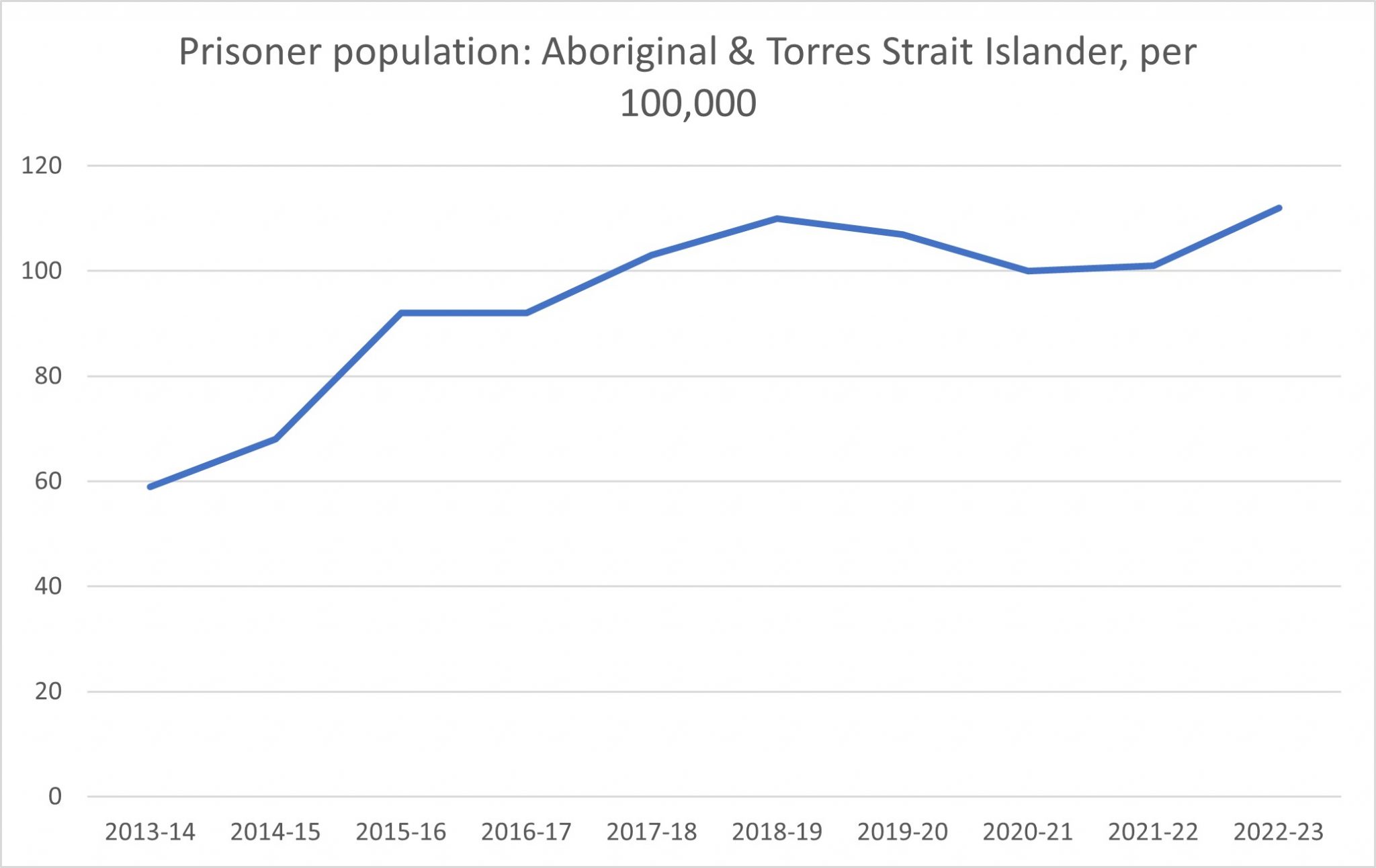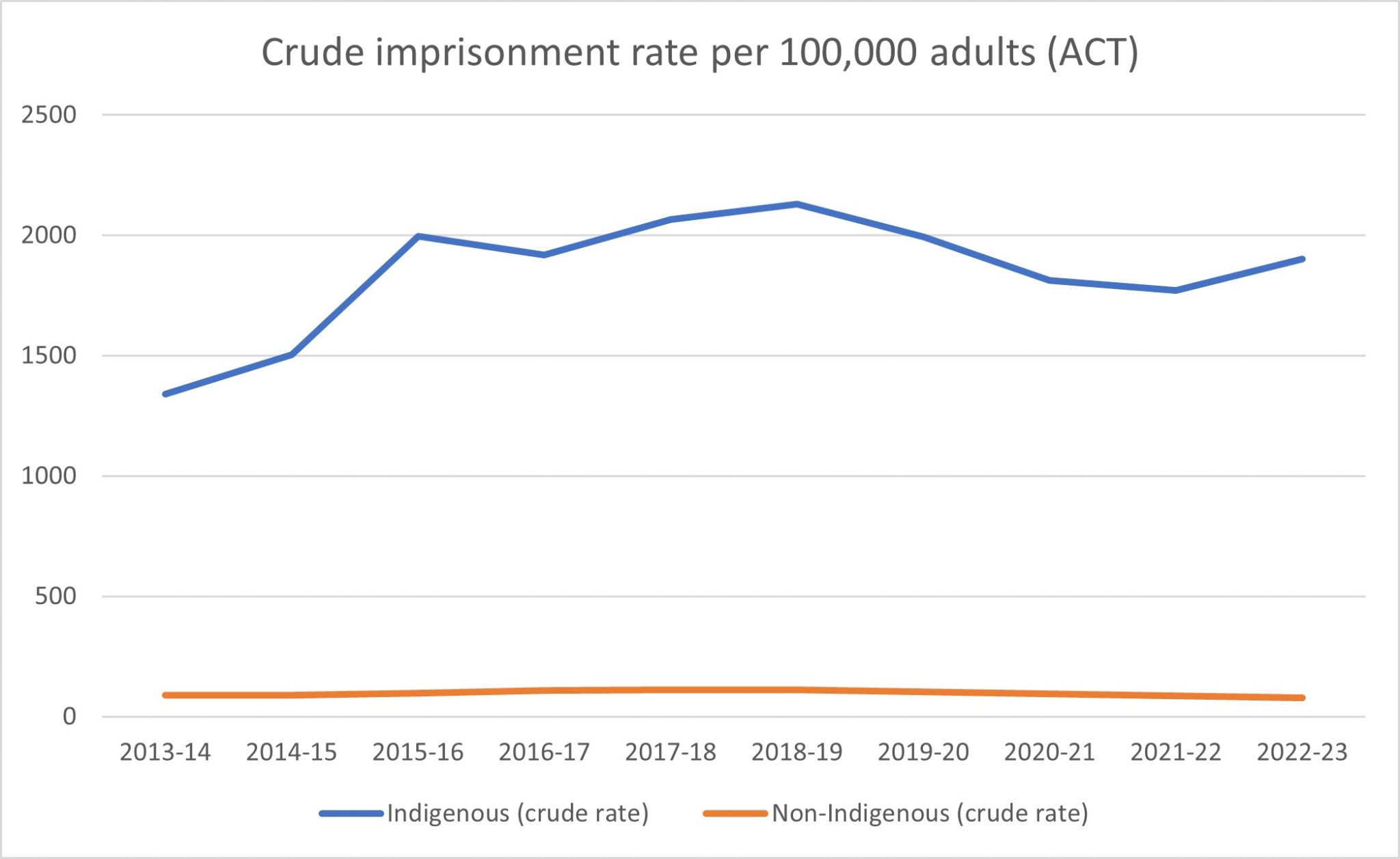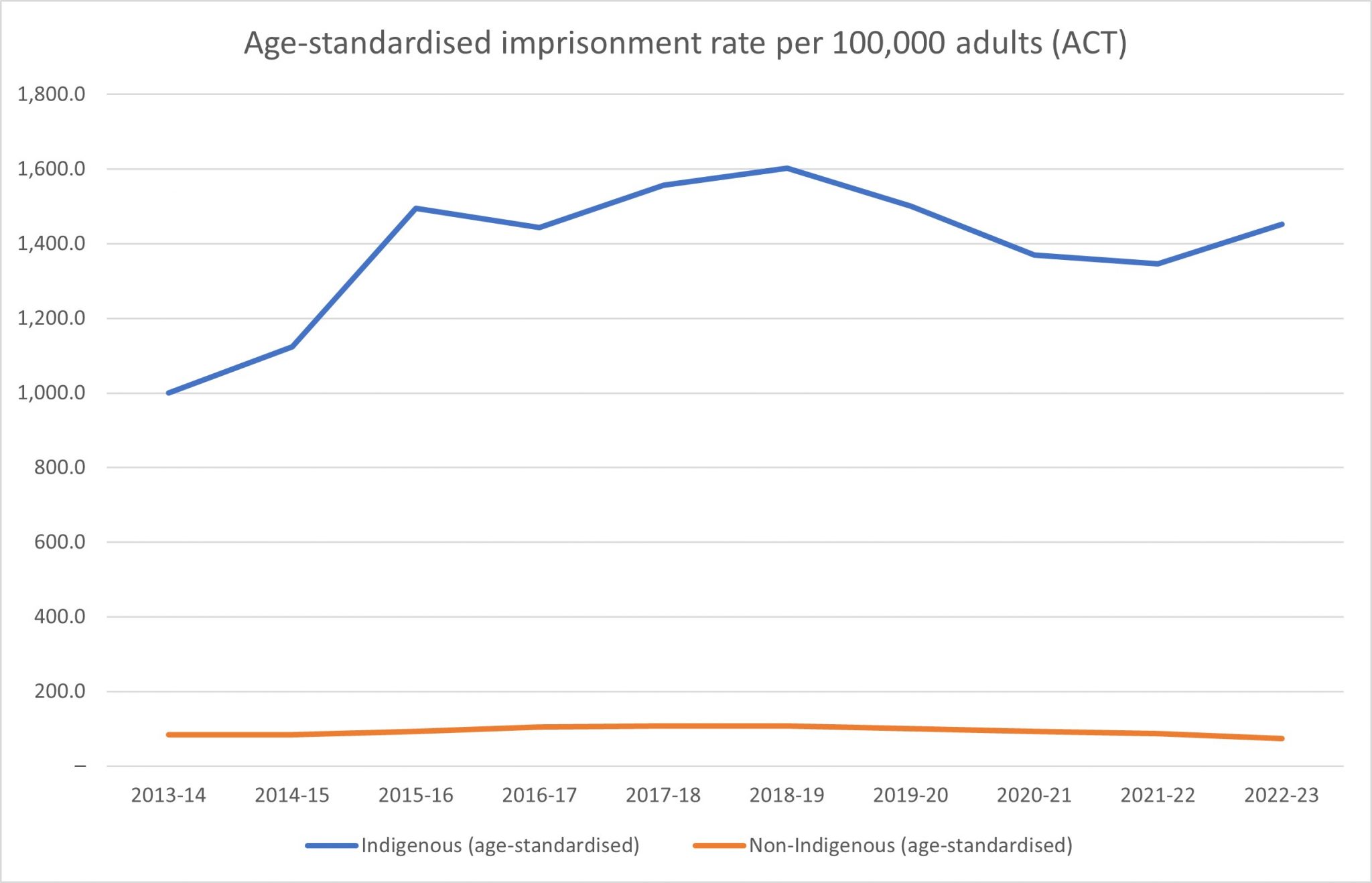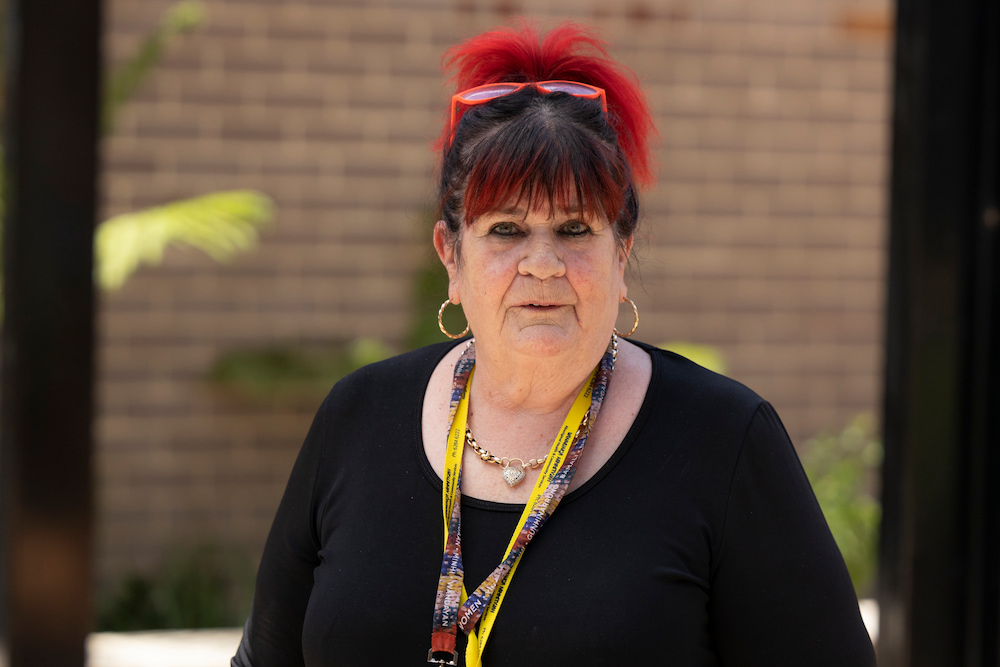The ACT has the highest Indigenous imprisonment rate in the country, and it is rising yearly, according to the 2022–23 Report on Government Services.
“The ACT, yet again and shamefully, continues to lock up Indigenous men and women at the highest rate in Australia and possibly in the world,” said Julie Tongs OAM, CEO of Winnunga Nimmityjah Aboriginal Health and Community Services.
Aboriginal people are 24.6 times (crude ratio) more likely to be sent to prison in Canberra than non-Aboriginal people, seven points above the national rate (17.4). Last year, the ACT rate was 20.5. (Table 8A.8)
The ACT’s Indigenous incarceration rate has increased from 26.1 per cent in 2021–22 to 28.9 per cent in 2022–23. The ACT has the nation’s highest age-standardised ratio of imprisonment of Aboriginal and Torres Strait Islander people (1,452.4 Indigenous people to 73.9 non-Indigenous). (Table 8A.5)



More positively, completion rates for community corrections orders among Aboriginal and Torres Strait Islander offenders in the ACT (82.5 per cent) were higher than the national average (70 per cent). (Table 8A.21)
An ACT Government spokesperson explained that the ACT’s smaller size resulted in greater fluctuations in performance indicators (relative to larger jurisdictions). Nevertheless, ACT Corrective Services remained committed to addressing the overrepresentation of Aboriginal and Torres Strait Islander peoples in the criminal justice system, including through reducing recidivism by 25 percent by 2025, and commitments under the ACT Aboriginal and Torres Strait Islander Agreement 2019-2028. The organisation has introduced an Aboriginal and Torres Strait Islander Offender Framework, and is developing a cultural Model of Care to ensure culturally safe and respectful support for First Nations people.
“A justice system that focuses on the needs of the individual will mean better life outcomes for them and a safer community,” said Emma Davidson MLA, recently appointed Minister for Corrections and Justice Health. “However, too many people are cycling in and out of our justice system, which highlights more needs to be done… My focus is on stronger justice reinvestment and connection to community while in the system, people will have greater access to the right support for their needs.
“The ACT Government is committed to reduce recidivism. The initiative focuses on a systemic response with seven pillars or priority areas to reduce recidivism through addressing the factors that lead to repeat offending, such as social isolation, inadequate housing, drug and alcohol dependence, and poor mental health. There are several initiatives that better connect people to these areas in their lives such as the transitional release program, Work Ready Program, and justice housing program.
“For First Nations people, there are culturally appropriate reporting sites and an intensive case management pilot for First Nations people to foster connection to culture, kin, and country. We know there is more to do, and we absolutely will do more to address recidivism rates of First Nations people. I am particularly keen to improve culturally appropriate and holistic health and social services in the community, which reduces harmful behaviour and improves life outcomes.”
Ms Tongs repeated her calls for a government inquiry.
“These shameful outcomes, repeated after year, demand as a minimum a comprehensive evidence-based response,” Ms Tongs said. “It is quite clear from the data repeated year after year on Indigenous incarceration rates that whatever the ACT Government is doing or purports to do to address this scandalous failing is not working.
“It is imperative, as a minimum, that the Government initiate a comprehensive inquiry, preferably with the powers of a Royal Commission, to inquire into the causes of the over-representation of the Aboriginal people in Canberra in touch with the justice system and / or incarcerated.”
Funding of the Alexander Maconochie Centre (the prison) and other places of detention were not the issue, she argued. The real net operating expenditure in 2022-23 on the AMC and community corrections was $100.9 million, while the net operating expenditure, per prisoner, per day in the ACT was $543.19, the highest in Australia. Nevertheless, the ACT had the highest Aboriginal recidivism rate in Australia: 90 per cent, according to the Australian Bureau of Statistics (2022).
“To persist with the current clearly inadequate and failed response to the over-representation of Aboriginal people in Canberra being sent to prison is, in my opinion, nothing short of obscene. It is also a concern to me that some may even argue that it is racist.”



